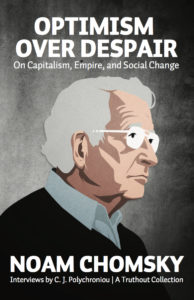Hans Nusselder ~ Sint Maarten niet langer levensvatbaar als autonoom land
De orkaan Irma heeft diepe wonden geslagen op Sint Maarten. De hulpacties vanuit Europees Nederland en Curaçao geven blijk van een diep gevoeld medeleven. Toch rijst de vraag of Sint Maarten in staat is aan toekomstige natuurrampen het hoofd te bieden. Daarbij hoort een afweging van de huidige positie van het land binnen het Koninkrijk, beschouwd vanuit een gezamenlijk Caribisch en Nederlands belang. Een pleidooi voor een nieuwe status van Sint Maarten.
Sint Maarten is sinds 10 oktober 2010 een autonoom land binnen het Koninkrijk, na een proces van ontmanteling van de Nederlandse Antillen. Het leidde tot de uitbreiding van één (Aruba) naar drie autonome landen (ook Curaçao en Sint Maarten); het betekende ook de bestuurlijke integratie van drie eilanden (Bonaire, Sint Eustatius en Saba) als bijzondere gemeenten in Europees Nederland.
Economisch leek het Sint Maarten met de autonomie voor de wind te gaan. Het kende sinds 2012 vier jaren onafgebroken economische groei, terwijl Curaçao pas in 2015 uit de krimp kwam. Beide eilanden profiteerden van de aanzienlijke schuldkwijtschelding vanuit Den Haag. Het GDP per hoofd van de bevolking over 2015 lag in Sint Maarten met ruim $ 26.000 dertig procent hoger dan in Curaçao.
Met een riante haven, die wordt beschouwd als dé maritieme hub voor megajachten in bezit van multimiljonairs, en een op toerisme toegesneden dienstensector had Sint Maarten een magnetische aantrekkingskracht. De bloei van het eiland leek door eerdere orkanen als Donna (1960) en Luis (1995) maar kort te zijn onderbroken. Wat kon er misgaan? Met drie breuklijnen is te illustreren waarom Sint Maarten al vóór de komst van Irma steeds kwetsbaarder werd.
Lees verder: https://spectator.clingendael.org/sint-maarten-niet-langer-levensvatbaar-als-autonoom-land
The Future Of Europe And The New World Disorder: An Interview With Political Economist C.J. Polychroniou
 Since the outbreak of the euro crisis, which was directly linked to the global financial crisis that erupted in 2007-08, Europe has been experiencing a host of contradictory trends and developments, which include efforts to contain the spread of systemic risk in the financial sector while the debt crisis remains unresolved for several eurozone member states, and calls for the creation of a European pillar of social rights while neoliberalism reigns supreme in EU’s economic policy agenda. In the meantime, a wave of extreme nationalism and xenophobia have spread in several European countries, challenging in the process not just globalization, but the foundation of an open, liberal society.
Since the outbreak of the euro crisis, which was directly linked to the global financial crisis that erupted in 2007-08, Europe has been experiencing a host of contradictory trends and developments, which include efforts to contain the spread of systemic risk in the financial sector while the debt crisis remains unresolved for several eurozone member states, and calls for the creation of a European pillar of social rights while neoliberalism reigns supreme in EU’s economic policy agenda. In the meantime, a wave of extreme nationalism and xenophobia have spread in several European countries, challenging in the process not just globalization, but the foundation of an open, liberal society.
Yet it’s not just the state of Europe that raises concerns about the future political and social order. As political economist C.J. Polychroniou points out in this interview, in the US, Trump’s militaristic attitude and jingoistic mindset puts the world on a very dangerous path, adding extra pressure to regions already beset by conflict and creating potential conditions not only for a renewed arms race, but for the actual use of nuclear weapons. Polychroniou has taught and worked in universities and research centers in Europe and the United States, and is the author of the recently published book Optimism Over Despair: On Capitalism, Empire, and Social Change, a collection of interviews with Noam Chomsky that appeared originally in Truthout and have been published by Haymarket Books in the US and Penguin Books in the rest of the English-speaking world.
Alexandra Boutri and Marcus Rolle: C.J., let’s start with developments in Europe: Brexit, Catalonia independence, meteoric rise of extreme right in Germany, illiberal democracies in Hungary, Poland and elsewhere, and the ongoing crisis in Greece. Is Europe in crisis?
C.J. Polychroniou: There is no question that Europe is facing severe challenges these days on several fronts that can affect the future of the continent on the whole. Brexit remains something of a conundrum; the push for independence in Catalonia is probably a very bad idea (although Catalans should have the “right to decide” on their future); the presence of 90 Alternative für Deutschland (AfD) politicians in the Bundestag is yet the strongest indication that the far right’s views have become quite acceptable among a growing segment of the German population, and the specter of illiberal democracy is haunting Europe. Indeed, I would go so far as to say that it is highly debatable whether or not Europe’s road to integration can proceed any more the way it has over the last 20 or so years.
The future of Europe is definitely one of multispeed and multitier, although President Jean-Claude Juncker, in his State of the Union Address in Brussels on September 13, made the case for a more united, stronger and democratic Europe, which includes an all-powerful president and an EU army, while an even far more impressive and comprehensive plan for a “profound transformation” of Europe was laid out by French president Emmanuel Macron at a speech he gave at Sorbonne University in Paris on September 26. Macron’s vision has the potential to turn Europe into the center of the world, but it is most unlikely that Germans would go along with some of his key ideas, such as creating a centralized eurozone budget and having a European finance minister.
Yet, these are precisely the things that are needed to revamp Europe as the specter of another euro crisis is a distinct possibility in the near future. In contrast to what many seem to believe, the euro crisis is not over and it can be reignited without any notice. Take, for instance, the issue of public debt. In Italy, it stands over 130 percent, while France’s public debt rose to the highest level in the first few months of 2017, reaching close to 100 percent of GDP. Moreover, Italy’s banking crisis remains unresolved, and Europe’s banking system in general remains quite fragile. As such, the next financial crisis could crash those economies, and that would mean a euro crisis 10 times bigger than the one experienced between 2010-2013. In fact, I dare say that a crisis in Italy — the eurozone’s third largest economy — is waiting to happen. In the meantime, you have central banks in Europe embarking on what is called the “Great Unwind” — the winding-down of quantitative easing programs that have sustained the continent’s economies, financial markets and banking systems since the outbreak of the euro crisis. What happens next is anyone’s guess. Will this development put a brake on EU economic boost? Most economists are worrying that it will. And what would happen if Europe went into a recession? Extreme nationalism and fraudulent populism, xenophobia and authoritarianism will surely be further strengthened. Read more
- Page 3 of 3
- previous page
- 1
- 2
- 3


